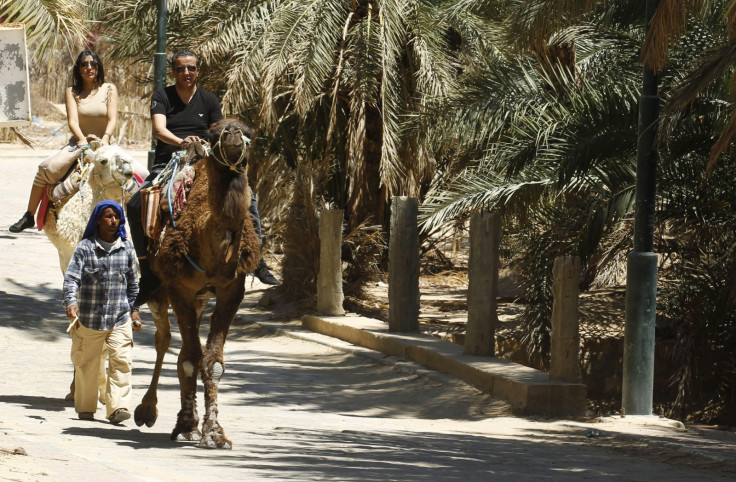Tunisia Loses French Tourists After Algeria Beheading

A third of French visitors cancelled their trips to Tunisia in the wake of the beheading of a French tourist in neighbouring Algeria, according to Tunisia's tourism minister.
Political and social upheaval in North Africa since the Arab uprisings of 2010 and 2011 have impacted on tourism in the region, as European travellers have sought alternative destinations instead.
"Within three days we saw 30% of booking cancelled," Tourism Minister Amel Karboul told reporters at a tourism conference in Berlin. "It's a shame because October is normally a strong month for tourists from France."
Sandwiched between Algeria and Libya, Tunisia has sought to reassure visitors by increasing the security presence on its borders with Algeria and Libya.
"Even if we as a country manage to be 100% safe, we are not immune to the effects created by the region we're in," Karboul said.
Tunisia's Jasmine Revolution of 2010-2011 saw long-serving autocrat Zine el-Abidine Ben Ali ousted amid popular demonstrations, seemingly launching a trend that saw massive street protests against authoritarian rule across Egypt, Libya, Yemen and Syria.
Tunisia's transition to a new political era has been relatively peaceful and the country is set to host a parliamentary election on October 26, followed by a presidential ballot in November.
While the transition has earned the country's leaders praise within the region, the violence that has swept neighbouring Libya and the recent beheading of a French tourist in Algeria have pushed tourists away from the eastern Mediterranean.
Tourism accounts for around 7% of Tunisia's gross domestic product. Yet, the numbers of travellers visiting the country has slumped since 2011.
The government was seeking to ease visa restrictions on eastern European travellers, Karboul said, as they have a stronger stomach for political unrest.
© Copyright IBTimes 2025. All rights reserved.






















